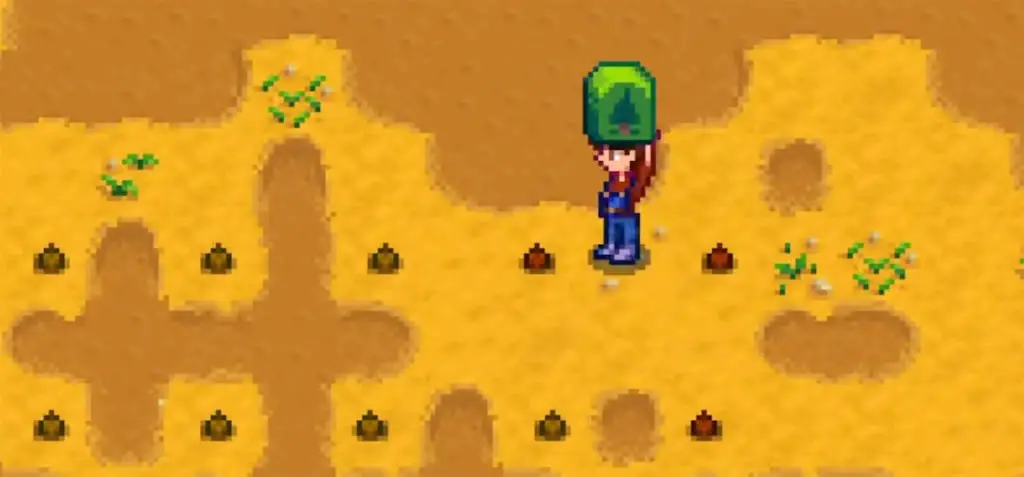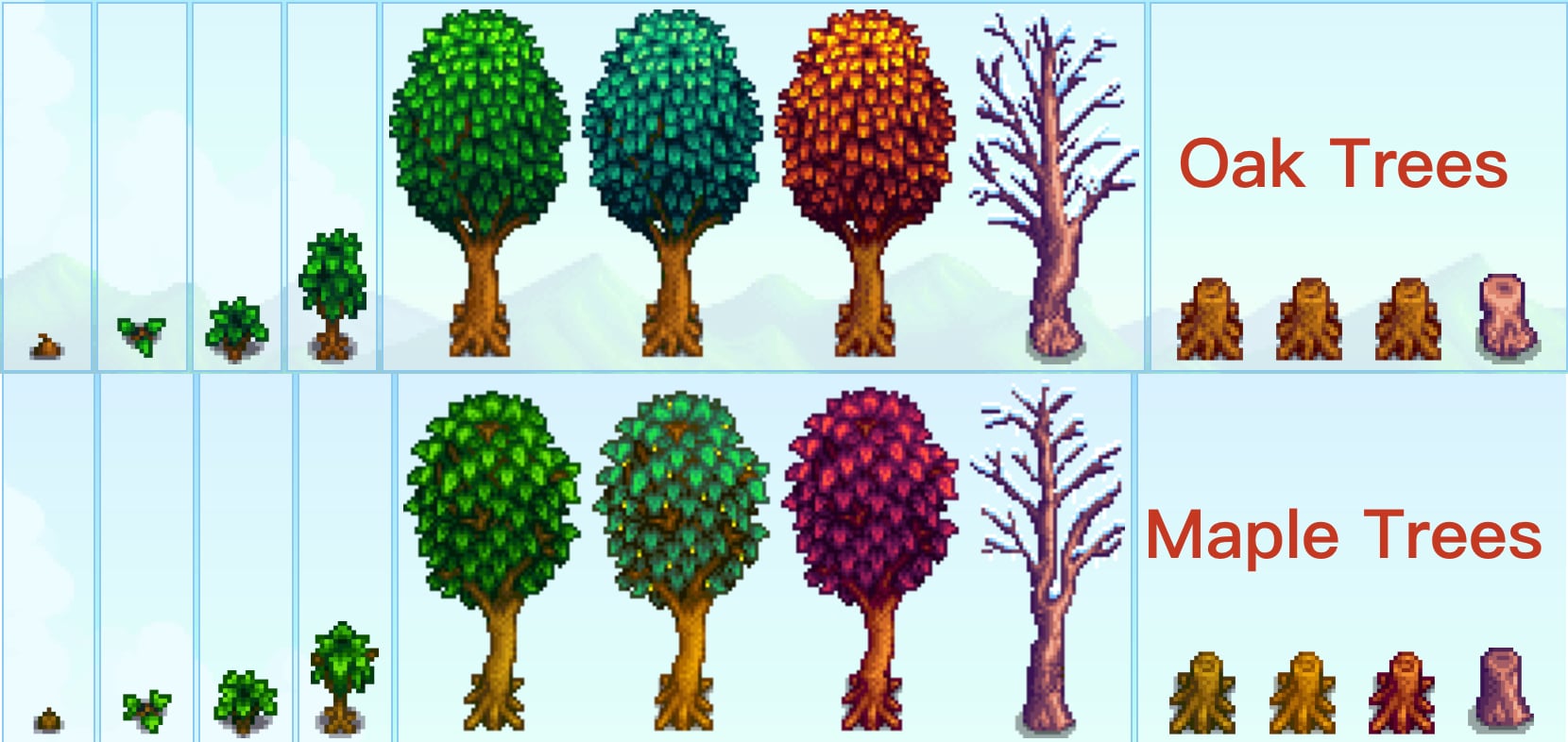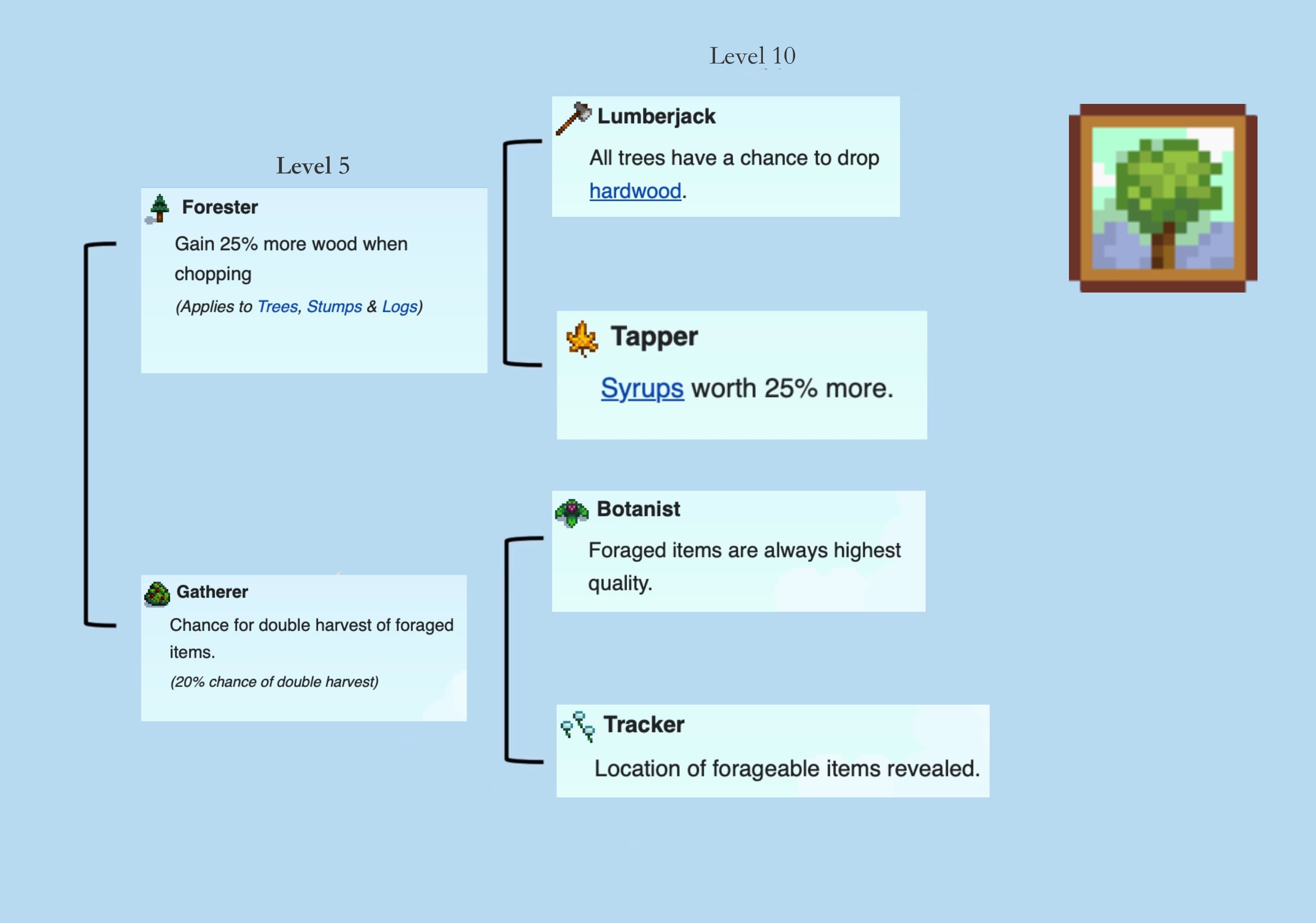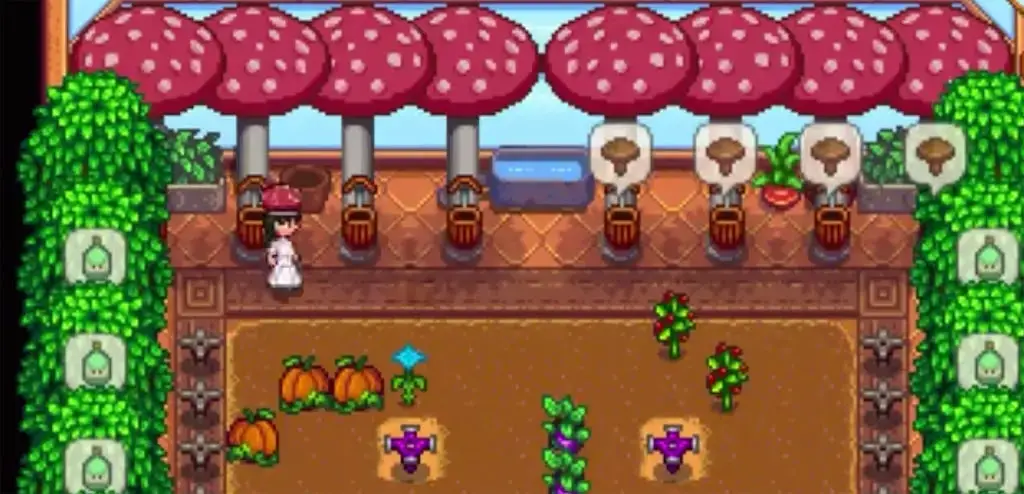Understanding the Intricacies of Luck, Woodcutting, and Foraging in Stardew Valley
Stardew Valley, the popular indie farming simulation game, has fascinated players worldwide with its intricate systems—farming, mining, fishing, and more. However, even with the expansive gameplay mechanics, some elements remain mystifying. One of such is the mechanics surrounding woodcutting and how it intersects with the player’s daily luck and foraging skills. This article aims to deconstruct these elements, to help you maximize your wood-gathering efforts.

Understanding Forester Skill
Let’s kick things off with the Forester skill. This skill boosts your wood and hardwood drop rates by 25% at any given time. This is a constant, so we won’t revisit this particular skill separately later on. Having the Forester skill will always add a 25% bonus to the quantity of wood and hardwood you can collect.
The Basics: Trees and Wood Drops
Stardew Valley features different types of trees—Maple, Oak, and Pine trees, to name a few. When you cut down a fully-grown tree, you can expect to receive between 12 to 16 pieces of wood, along with a guaranteed 5 pieces of tree sap. Once you reach Foraging Level 1, you also stand a chance to get 0–2 corresponding tree seeds.

How Does Luck Factor In?
Luck plays a role in the amount of wood that falls from trees, but it’s not the sole determinant. The base drop rate for wood from a tree is 12 pieces. If your daily luck is at its maximum value of 0.125, there’s a 12.5% chance you might get one additional piece of wood. If your luck is zero or negative, you will definitely not get the additional piece, but it also doesn’t reduce the base amount.
You may feel that luck’s influence on woodcutting is minuscule. When considering the best or worst scenarios of luck, cutting down 100 trees will only yield a difference of roughly one tree’s worth of wood. So, waiting for a high-luck day to chop trees is unnecessary. In fact, days with bad luck are more than suitable for this activity.
Foraging Level’s Hefty Influence
The foraging level has a more substantial impact on wood drops compared to daily luck. The probability of an extra wood drop increases by your foraging level divided by 12.5. For instance, if you’re at Foraging Level 1, you have an 8% chance to get an extra piece of wood. At Foraging Level 10, this probability jumps to 80%. And it doesn’t stop there; the same probability applies for a second additional wood drop. These probabilities operate independently from each other.

Because of this, your foraging level holds the most significant influence on the amount of extra wood you can collect. However, leveling up your foraging skill without actually cutting trees is challenging. So, if you plan to chop wood all day, consuming food that boosts your foraging skill is an excellent strategy, offering a higher extra drop rate than what daily luck provides.
Effects of Luck-Boosting Items
Wearing luck-boosting items like Lucky Rings might seem beneficial, but their impact is relatively low. These items provide an additional wood drop chance by your luck bonus divided by 25. So if you’re wearing two Lucky Rings that together provide an 8% luck boost, you have an 8% chance of getting one extra piece of wood. This is a small increase in comparison to the base 12 pieces you already receive from a tree.
Independent Evaluation for Extra Drops
It’s essential to understand that all four opportunities for additional wood drops (daily luck, two instances of foraging level, and luck-boosting items) are independently evaluated. None of them depends on the other to trigger. In other words, each chance is separate, and then they’re all summed up. So, if all conditions are met, the maximum wood you can collect from a tree is 16 pieces.
Stumps, Hardwoods, and Exemptions
Stumps also yield wood, but their mechanics differ slightly. The base wood drop for stumps is 5 pieces. Their maximum is 9 pieces, given that all extra drop conditions are met. Stumps also drop one guaranteed tree sap. Because the base amount for stumps is smaller, any luck or skill influence has a more substantial relative effect.
Some trees, like Mahogany Trees, drop hardwood. These trees are not influenced by daily luck or foraging levels. They will randomly drop between 7–11 pieces of hardwood and 0–1 Mahogany seed. Similarly, other special trees like mushroom trees also are not affected by luck or foraging levels.

Conclusion
In summary, daily luck and luck-boosting items are not as impactful on wood drops as one might think. The foraging level is the game-changer here, offering the highest probability for additional wood. If you’re serious about maximizing your lumber yields, focus on leveling up your foraging skill and don’t worry too much about your daily luck.
By understanding these mechanics, you can better strategize your days in Stardew Valley, ensuring you get the most out of your tree-chopping adventures. Happy farming!